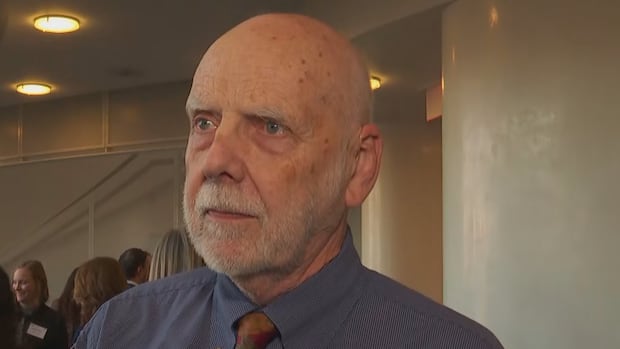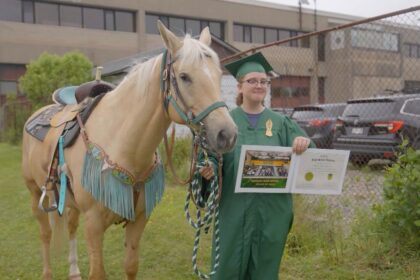TorontoA Canadian charitable foundation has given $35 million to two children’s hospitals in Ontario with the aim of improving mental health care for children and youth.SickKids in Toronto and CHEO in Ottawa to use money for ‘precision’ medicineMuriel Draaisma · CBC News · Posted: Nov 19, 2025 10:44 PM EST | Last Updated: 10 hours agoListen to this articleEstimated 3 minutesThe audio version of this article is generated by text-to-speech, a technology based on artificial intelligence.Bruce McKean, founder of the Waverley House Foundation, says: ‘Mental health — it needs so much support.’ (Grant Linton/CBC)A Canadian charity has given $35 million to two Ontario children’s hospitals with the aim of improving mental health care for children and youth.The Waverley House Foundation and its founder, Bruce McKean, a philanthropist, announced the gift to Toronto’s Hospital for Sick Children and Ottawa’s Children’s Hospital of Eastern Ontario on Wednesday in Toronto.Each hospital will receive $17.5 million to fund what is called Precision Child and Youth Mental Health, a population-based child and youth mental health system created three years ago. The system uses “comprehensive” information to identify and treat children and youth with mental health problems more precisely, the Waverley House Foundation says on its website.McKean said the gift was motivated by concern about the state of mental health and the mental health experiences of family members and colleagues. He added he is hoping to make a difference.”Mental health — it needs so much support,” McKean said.In a news release on Wednesday, McKean said: “I’ve seen how mental health challenges can ripple through families and generations. Too often, we react too late. Surely early detection and intervention in youth will change lives, save lives.”‘From DNA code to postal code’Steve Read, president and CEO of the CHEO Foundation in Ottawa, said the gift is “transformational” and it will allow the two hospitals to continue to work together to improve mental health outcomes for children and youth.”We’re all really excited at the future this is creating,” Read said.Dr. Jacob Vorstman, a child and adolescent psychiatrist at SickKids, said the hospitals are using “precision medicine” to diagnose children using specific information about each child, such as genetic, environmental and biological factors, to provide more tailored treatment.”It’s really the ambition to move from treating a condition, let’s say anxiety disorder, to treating a specific child with that condition. What this means is we want to take into account everything there is to know about that specific child. What we say is everything from DNA code to postal code,” Vorstman said.WATCH | Wait times grow for mental health services for youth and children:Ontario youth in need of mental health treatment waiting more than 3 months, auditor general findsOntario’s auditor general says the province is failing to provide adequate mental health services for youth and children. As CBC’s Shawn Jeffords reports, wait times for intensive treatment have grown and now take more than three months. In a news release, SickKids and CHEO said about 70 per cent mental health challenges begin early in life and early diagnosis and intervention are crucial to long-term well-being. The hospitals said an estimated 1.2 million children and youth are affected by mental illness in Canada.”Precision mental health care uses data and research to tailor treatment to each young person’s unique biology, environment, lifestyle, and experiences,” the news release said.On its website, Precision Child and Youth Mental Health says: “The goal is to detect mental health disorders sooner, provide better treatments tailored to the needs of each child and youth and improve long-term outcomes.” McKean established the Waverley House Foundation in 2017 to support research initiatives that help to identify and treat mental illnesses. On its website, the Waverley House Foundation says: “Early outcomes of our gift include: artificial intelligence infrastructure is knitting together data to diagnose Autism Spectrum Disorder (ASD); biomarkers are being identified that are linked to eating disorders; and clinical tools are being developed that predict mental health outcomes following childhood stroke.”ABOUT THE AUTHORMuriel Draaisma is a reporter and writer at CBC News in Toronto. She likes to write about social justice issues. She has previously worked for the Vancouver Sun, Edmonton Journal and Regina Leader-Post. She is originally from B.C. Have an idea for a story? You can reach her at muriel.draaisma@cbc.ca.With files from Grant Linton
Wednesday, 4 Mar 2026
Canada – The Illusion
Search
Have an existing account?
Sign In
© 2022 Foxiz News Network. Ruby Design Company. All Rights Reserved.
You May also Like
- More News:
- history
- Standing Bear Network
- John Gonzalez
- ᐊᔭᐦᑊ ayahp — It happened
- Creation
- Beneath the Water
- Olympic gold medal
- Jim Thorpe
- type O blood
- the bringer of life
- Raven
- Wás’agi
- NoiseCat
- 'Sugarcane'
- The rivers still sing
- ᑲᓂᐸᐏᐟ ᒪᐢᑿ
- ᐅᑳᐤ okâw — We remember
- ᐊᓂᓈᐯᐃᐧᐣ aninâpêwin — Truth
- This is what it means to be human.
- Nokoma











